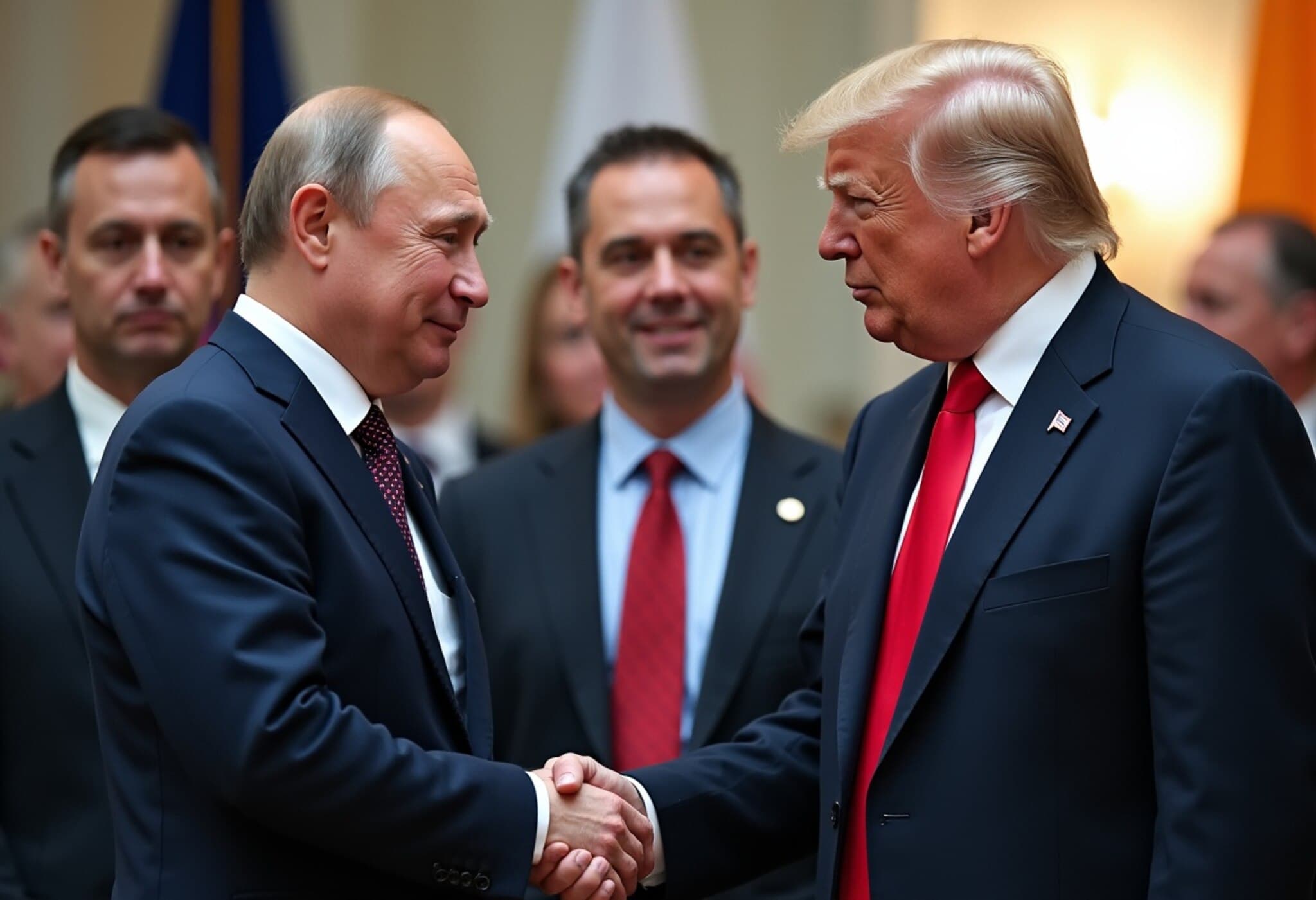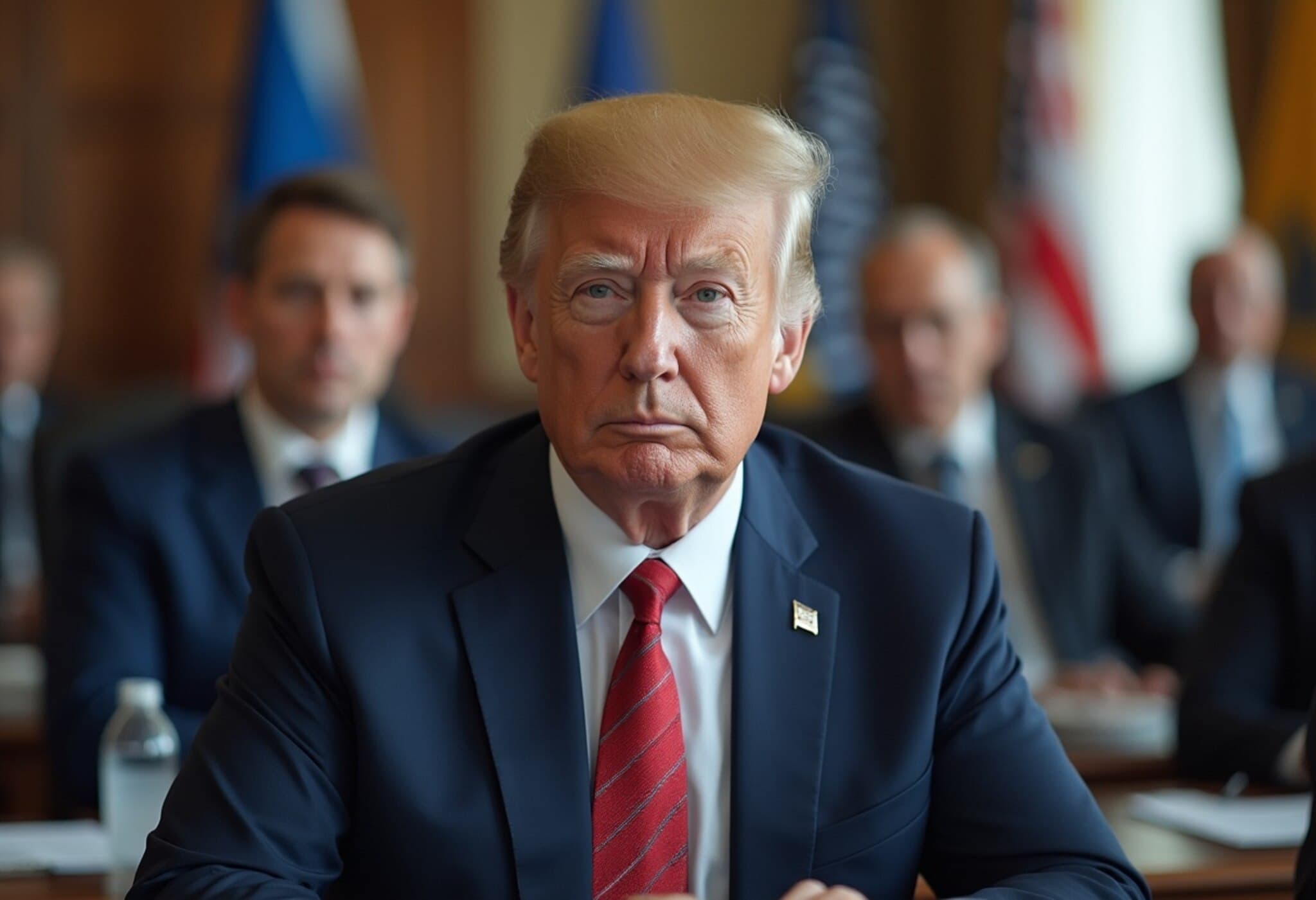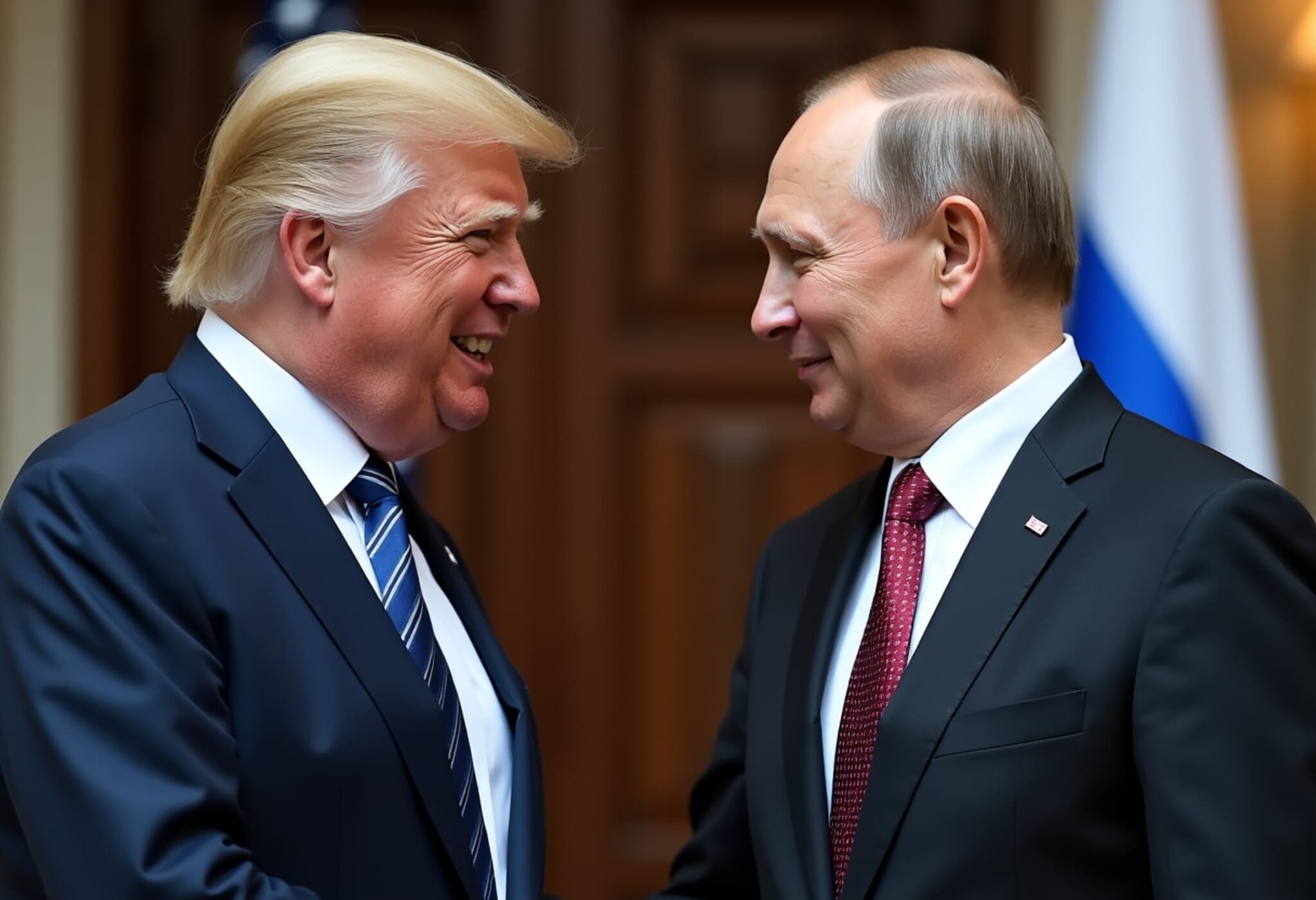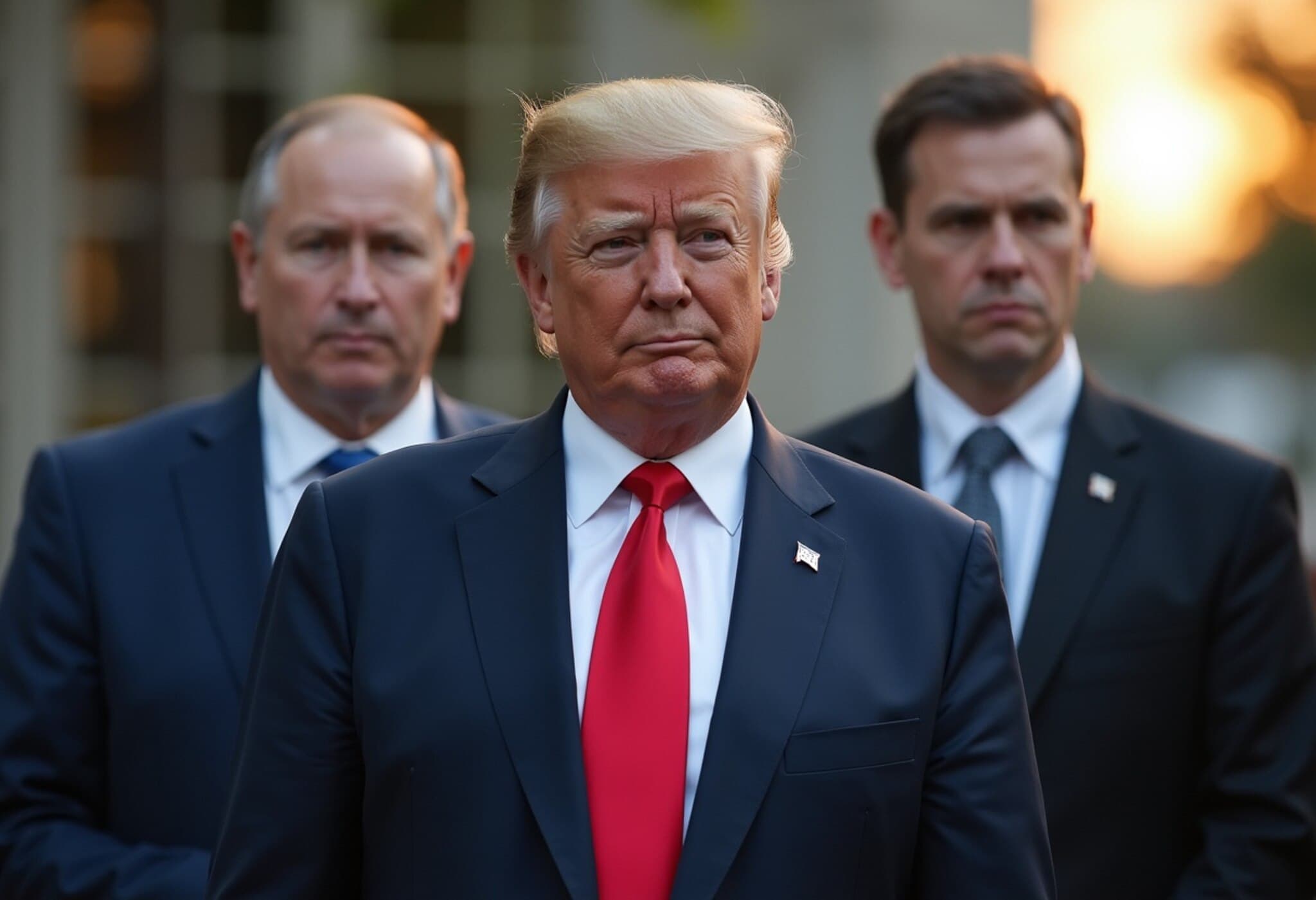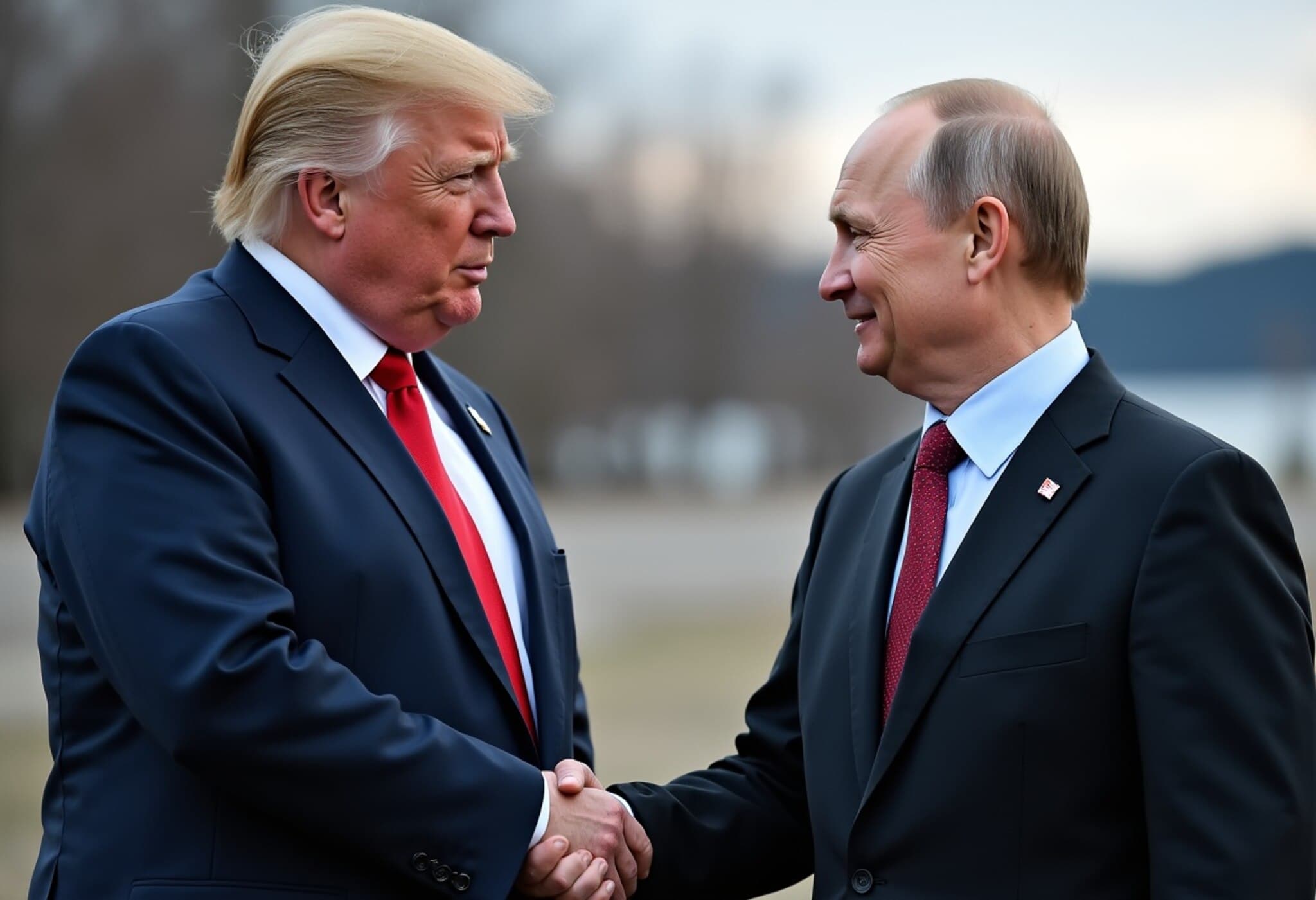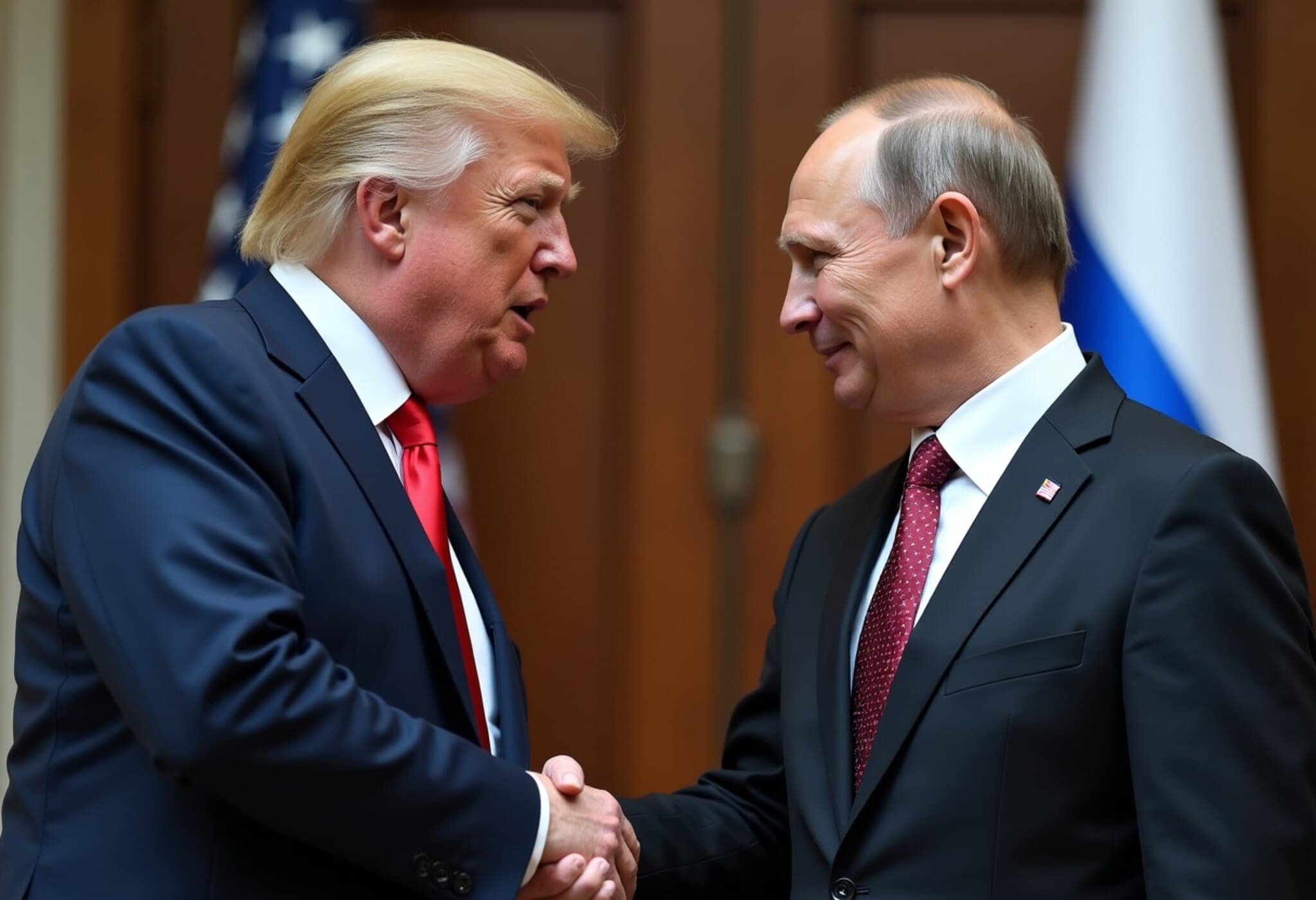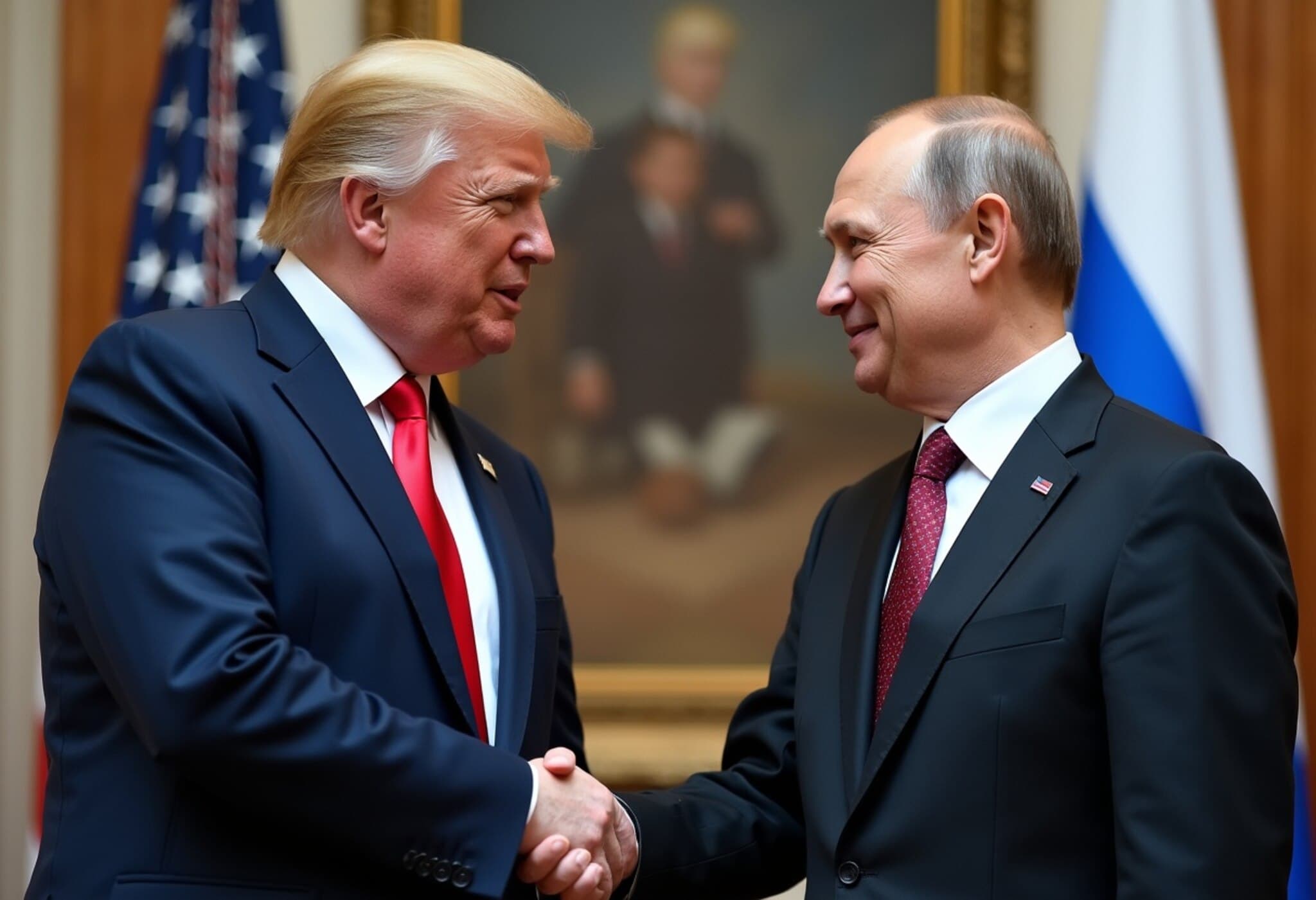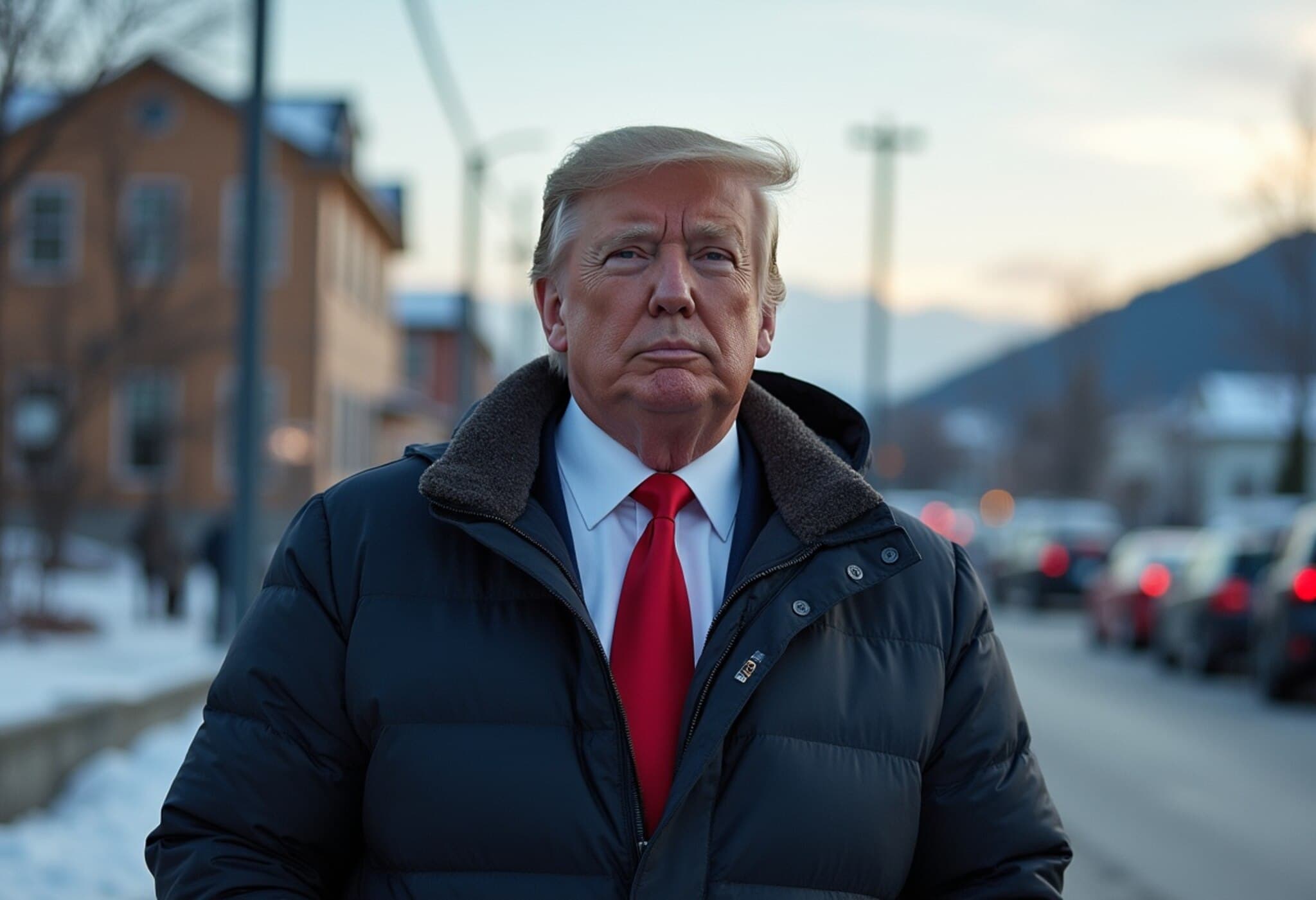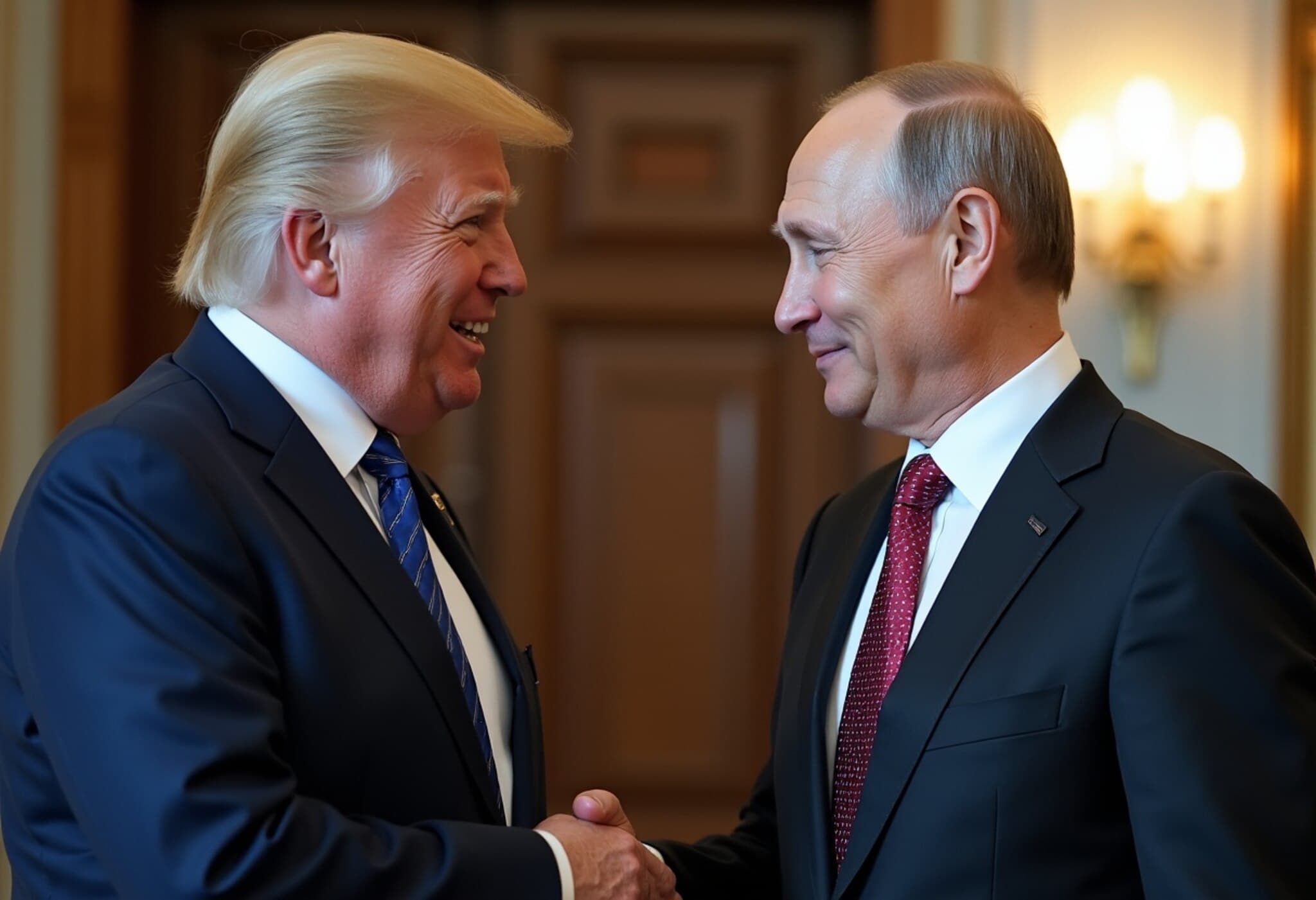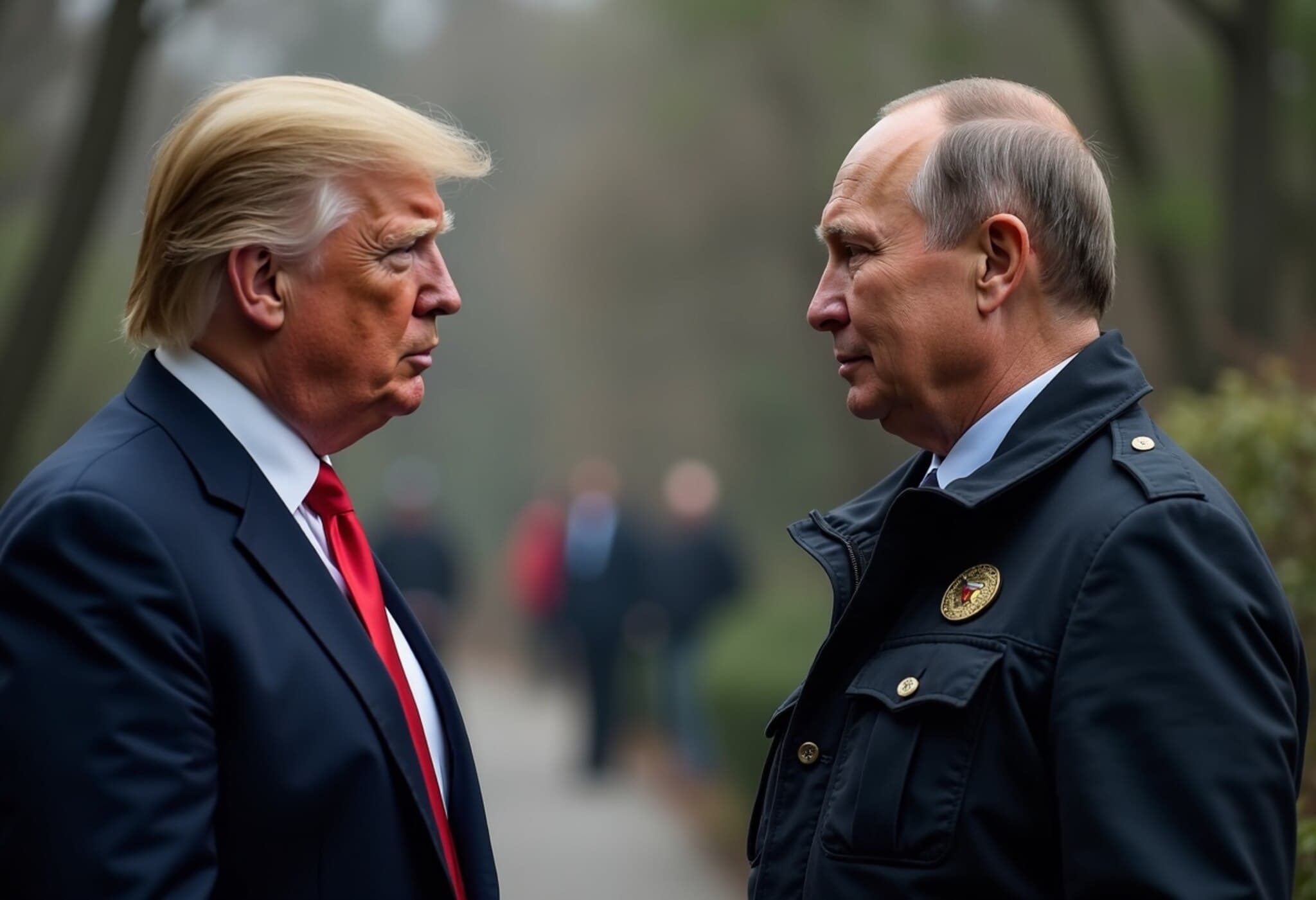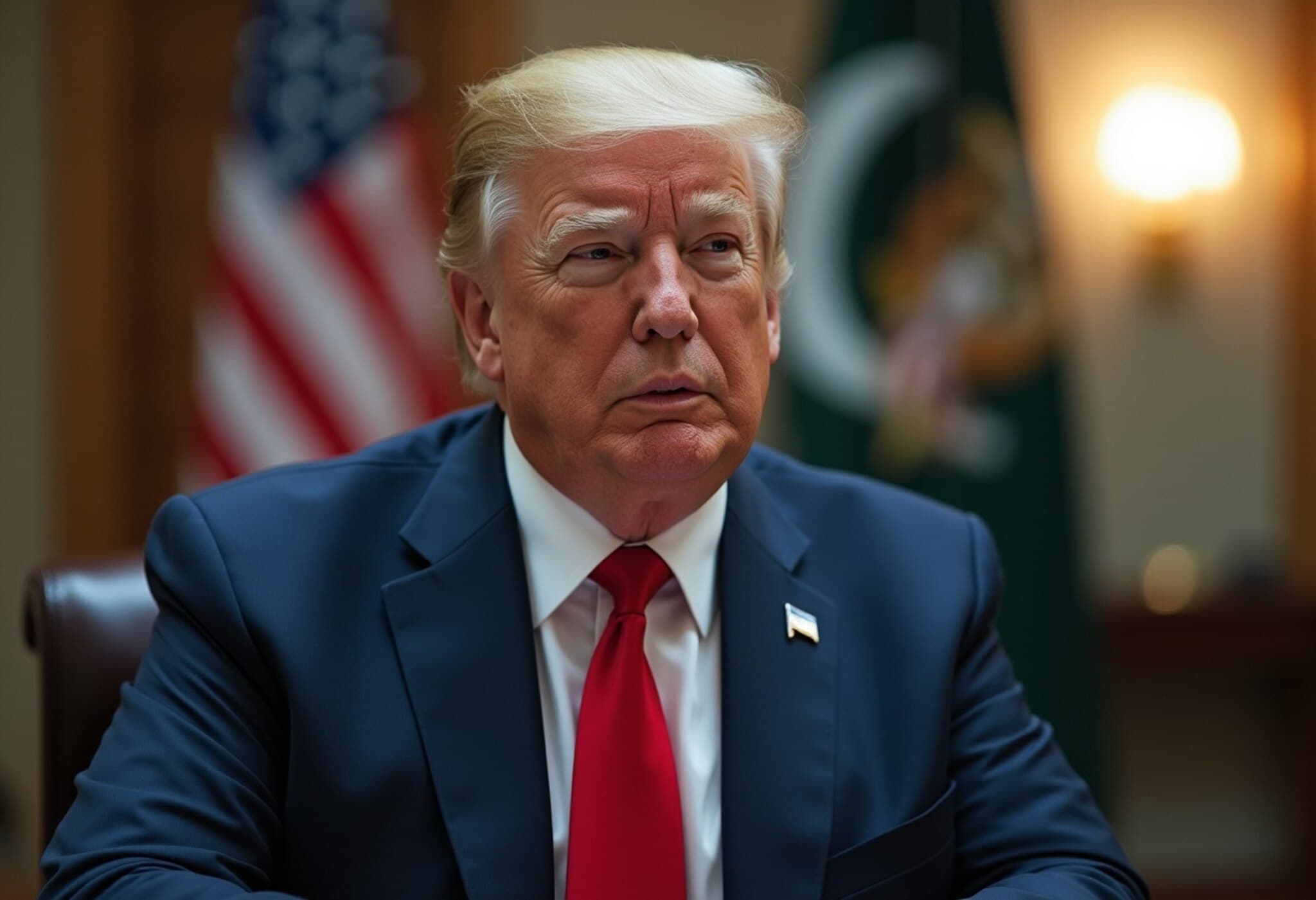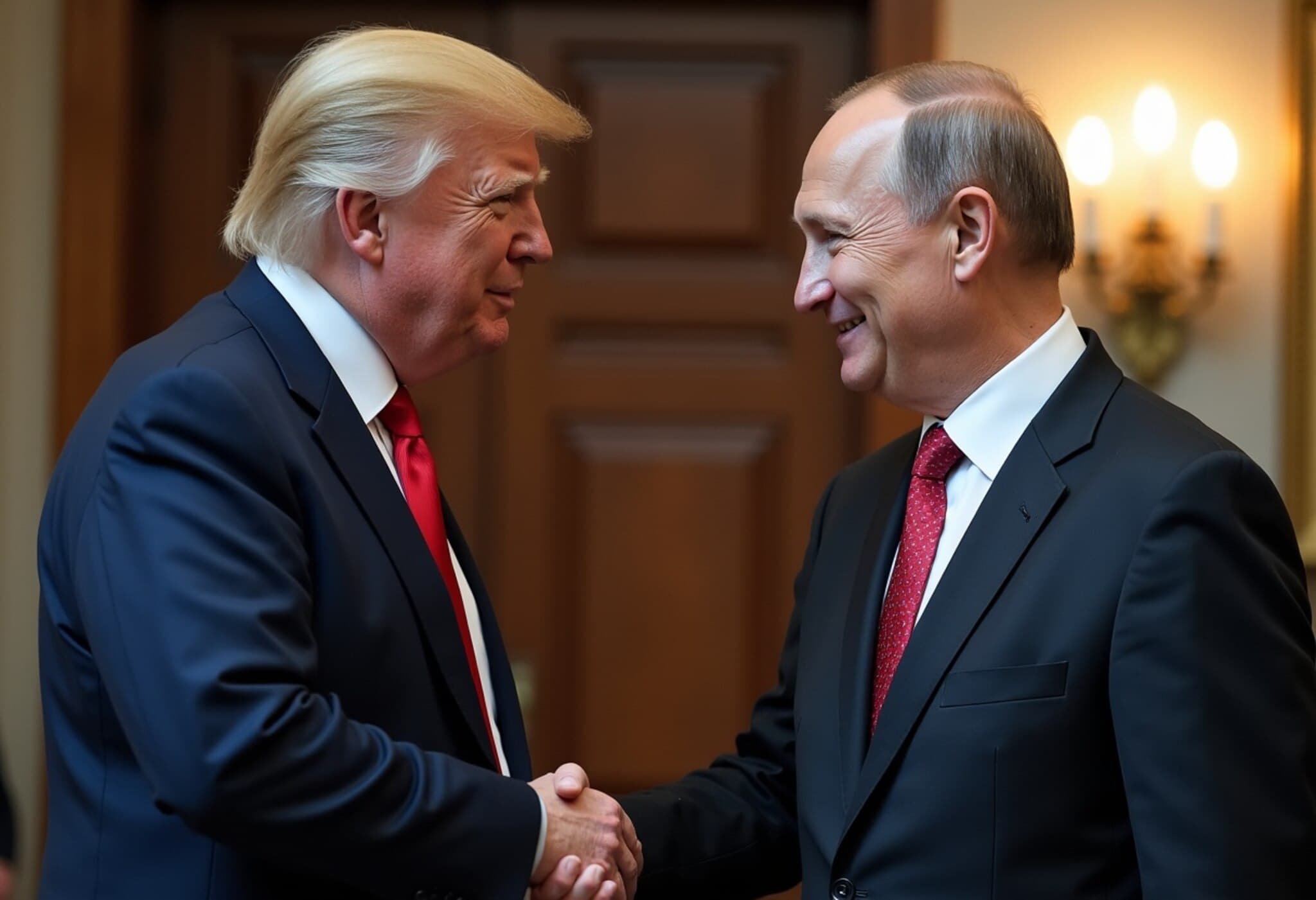Trump Issues Stern Warning to Putin Ahead of Alaska Summit on Ukraine War
As the protracted conflict in Ukraine enters its fourth year, US President Donald Trump delivered a pointed warning to Russian President Vladimir Putin. Speaking on August 13, 2025, Trump cautioned that Putin would face "very severe consequences" if the war does not cease. The announcement came ahead of their highly anticipated summit in Alaska scheduled for Friday.
During a Washington event announcing the Kennedy Center Honours, Trump spoke cautiously, refraining from specifying the nature of these consequences. Nevertheless, the warning underscored the escalating international pressure on Russia amid ongoing hostilities.
Virtual Summit with European Leaders and Zelenskyy Highlights Divided Perspectives
Just hours before the Alaska talks, Trump participated in a virtual meeting with key European leaders and Ukrainian President Volodymyr Zelenskyy. He rated the meeting a "10 out of 10," describing it as "very friendly," and affirmed his commitment to prioritizing a ceasefire in his talks with Putin.
However, Trump sidestepped questions about whether Zelenskyy would join the Alaska summit directly alongside Putin. Instead, he suggested the possibility of a separate trilateral meeting post-summit to bring all parties together.
Zelenskyy Calls Putin’s Claims a Bluff on Military Strength and Sanctions
During the virtual call, Zelenskyy challenged Putin’s portrayal of Russia's military and economic resilience. According to Zelenskyy, Putin is "bluffing" by overstating both the strength of Russian forces and the ineffectiveness of Western sanctions.
"He is attempting to pressure every part of the Ukrainian front," Zelenskyy stated, emphasizing that Russia's claims of potentially occupying the entire country are exaggerated. He also stressed that contrary to Putin's narrative, sanctions are significantly damaging Russia's war economy.
European Leaders Rally for a Strong Ceasefire Framework
European voices at the meeting, including German Chancellor Friedrich Merz and French President Emmanuel Macron, echoed Zelenskyy’s call for a ceasefire as the foundation for any meaningful negotiations.
- German Chancellor Friedrich Merz highlighted the importance of protecting European and Ukrainian security interests, while acknowledging that "important decisions" might emerge from the Alaska summit.
- French President Emmanuel Macron confirmed Trump’s clear U.S. commitment to pushing for ceasefire talks during his engagement with Putin.
Merz, who played a central role in orchestrating the virtual meeting, underscored that any negotiations must begin from a position of peace, emphasizing the indispensability of a ceasefire.
Trump's Controversial Land Swap Proposal Stokes Tensions
Despite this unified front on ending the war, Trump has sparked controversy among European and Ukrainian officials by suggesting the possibility of land swaps involving Russian-occupied territories. Such proposals remain deeply contentious and have been firmly rejected by Kyiv, which views them as compromising Ukraine’s sovereignty.
This stance has been a sticking point for European allies who advocate for a negotiated settlement without territorial concessions that undermine international law.
The Alaska Summit: A Historic Backdrop for High-Stakes Diplomacy
Scheduled to take place at a U.S. military base in Anchorage — historically used for strategic defense against Russia — the summit is seen by analysts as a critical litmus test of Putin’s willingness to negotiate an end to the conflict.
Trump described the meeting as a “feel-out” opportunity to assess Russia's readiness for peace. However, uncertainty looms over whether this summit will yield any significant breakthroughs or if it will merely underscore the deep divisions entrenched in this long-standing conflict.
Key Questions Remain
- Will Zelenskyy participate directly in future trilateral talks with Trump and Putin?
- Can ceasefire discussions overcome hardline stances on territorial integrity?
- What role will European security interests play in shaping any potential peace accord?
The coming days promise intense diplomatic maneuvering as the world watches closely, hoping for pathways to peace in a war that has reshaped Eastern Europe and global geopolitics.
Editor’s Note
The Alaska summit between Trump and Putin forms a pivotal moment amid a stagnant and devastating conflict in Ukraine. While President Trump announces "very severe consequences" for Russia if peace is not achieved, the absence of detailed proposals leaves considerable ambiguity over U.S. strategy. Meanwhile, Zelenskyy’s assertion that Putin is bluffing highlights the contrast between Russian posturing and Ukrainian resilience.
As European leaders emphasize the primacy of security and ceasefire, underlying tensions around territorial sovereignty pose significant obstacles. The possibility of land swaps remains a flashpoint, illustrating the complexities of reconciling geopolitical realities with principles of international law.
This evolving situation demands close scrutiny, as diplomatic efforts now balance on the knife-edge between hopeful rapprochement and entrenched conflict. The summit’s outcomes could either pave the way for de-escalation or reinforce a prolonged deadlock — the stakes could not be higher for regional stability and global order.


